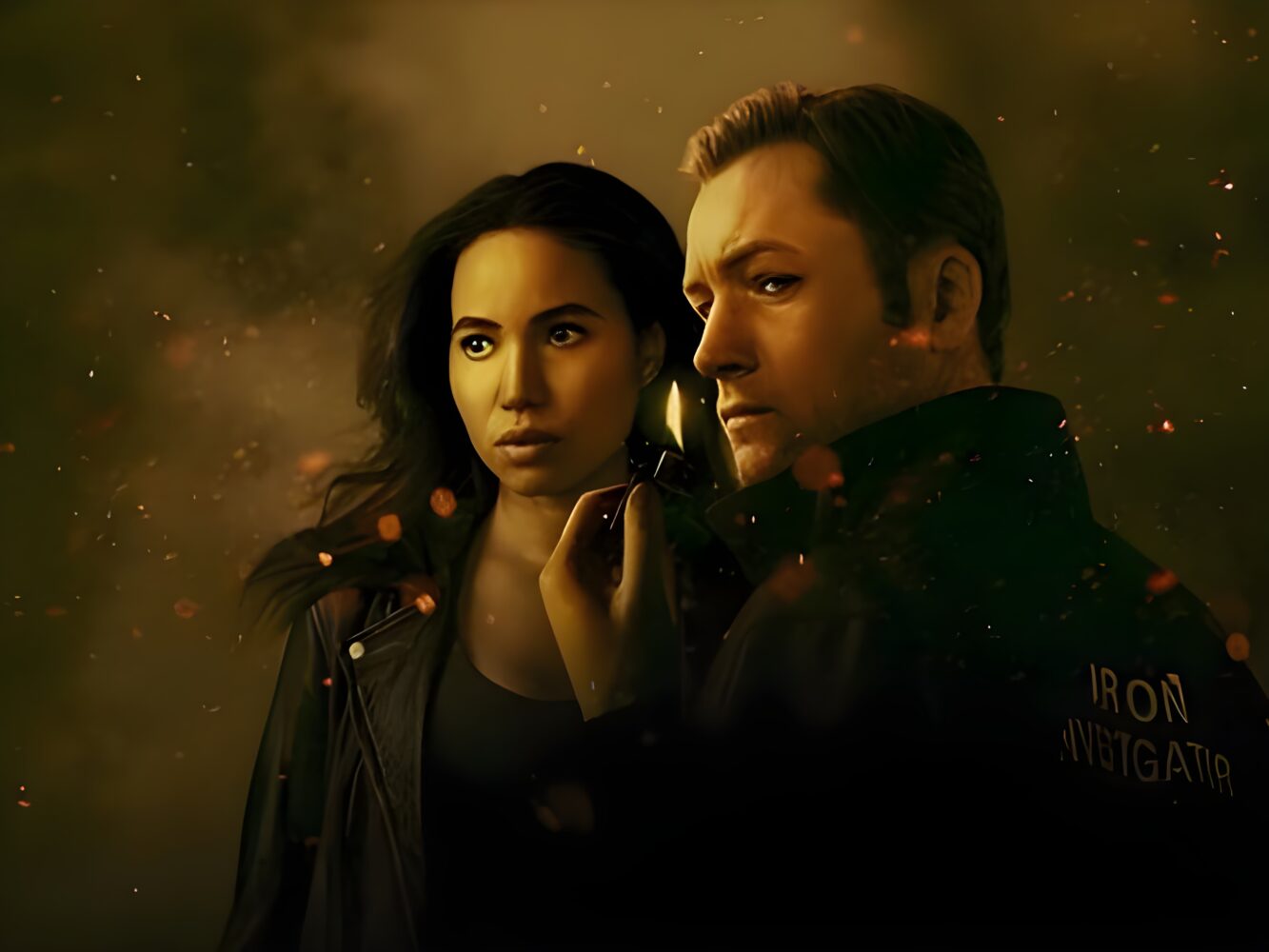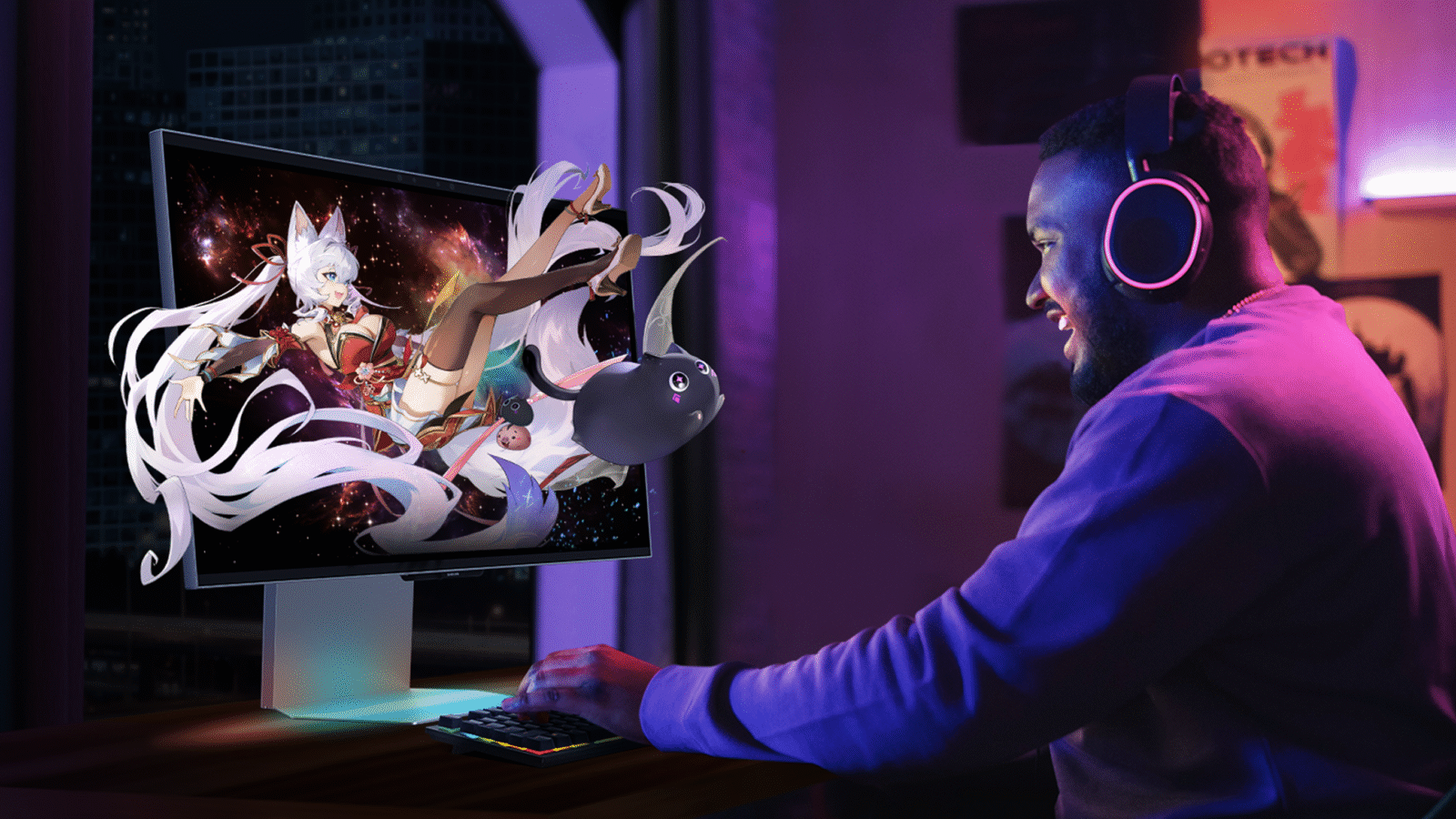TL;DR: In the Smoke Season 1 finale, Taron Egerton’s Dave is revealed not just as the arsonist—but as a man who’s been hallucinating his entire identity. A jaw-dropping twist shatters the illusion we’ve been living in, exposing a delusional mind that rewrote his own appearance, morality, and role in the story. The result is one of the most unsettling TV endings in years—and a chilling reminder that the most dangerous fires start inside our heads.
Smoke
Some TV twists are satisfying. Some are shocking. And some are so psychologically unhinged, so quietly devastating, that they don’t just pull the rug out from under you—they burn the whole floor down while you’re still standing on it. The final moments of Smoke Season 1 fall squarely into that third category.
After eight episodes of simmering dread, sweaty lies, and some deeply suspect interior monologues courtesy of Taron Egerton’s unnervingly charismatic Dave Gudsen, Apple TV+’s Smoke drops a finale twist so disturbing, so perfectly executed, that I actually paused the screen—not out of confusion, but out of disbelief that the show actually went there. And oh, it did.
This isn’t just a twist about who did what. It’s a gut punch about who anyone ever was to begin with. It’s a finale that pulls the mask off its central character—literally—and dares you to reconsider everything you thought you saw. It’s not about plot. It’s about perception. And perception, as this show makes painfully clear, is nothing but gasoline on the fire of delusion.
The Firestarter Is You, Dave
For most of Smoke, Dave Gudsen presents himself as exactly the kind of man you want kicking in your door when the house is burning down. Confident. Clean-cut. Moral. A fireman’s fireman. He’s also writing a novel on the side (which we’ll come back to because wow) and balancing a too-good-to-be-true suburban life with a picturesque wife and a sullen but manageable stepson. There’s even a new partner on the scene—Jurnee Smollett’s Michelle Calderone, who’s there to trade barbs, smoke out leads, and occasionally look confused at the camera like she knows something’s not right.
From the jump, Smoke plays like prestige noir with a little heat damage. The Milk Jug Arsonist—Freddy—is unmasked quickly, a slow-burning red herring wrapped in grease-stained fast-food uniforms and twitchy remorse. But the real game is Dave’s obsessive hunt for the second firebug, the so-called D&C Arsonist. Divide and conquer. Double ignition points. A pyro with a strategy.
Except, of course, there’s no hunt. Because Dave is chasing himself.
He Was Never Hunting the Arsonist. He Was the Arsonist.
The reveal in Episode 2—that Dave is the D&C Arsonist—was a bold swing. A show revealing its “hero” is actually the villain this early risks blowing its tension wide open. But what Smoke does from that point onward is chilling: it slows down. It lets Dave simmer in his double life, lets us see the cracks in his reality, the flickers of instability, the odd smiles that don’t quite reach his eyes.
He’s not unraveling. He’s writing. Constructing. Narrating his life like it’s a novel only he’s read.
And in the season finale, that novel finally collapses under its own delusions.
The Mirror Scene: Smoke’s Masterstroke of Horror
In a single shot—just a few seconds long—Smoke delivers what might be the most quietly horrifying moment on television this year. Dave, caught, handcuffed in an interrogation room, still trying to charm and deflect and mythologize himself, looks into the two-way mirror.
And he sees… not himself.
He sees the real Dave Gudsen. Older. Heavier. Balding. A man who, under any other circumstance, would be invisible in his own story. And just like that, it hits: the Dave we’ve been watching all season doesn’t exist. He’s a hallucination. A projection. A fiction Dave has been living inside.
We don’t see a shapeshift. We see a shattering. Because what breaks in that moment isn’t just the illusion—it’s Dave’s self-concept. And through brilliant editing and near-silent horror, we realize that everyone around him—his wife, his son, his partner—has always seen that Dave. Not the version we’ve been sold.
This is identity as arson. Self-image as smoke. He’s not the hero. He’s barely even the man.
The Mind as a Furnace
The finale’s big twist doesn’t work just because it’s clever—it works because Smoke has spent an entire season conditioning you to trust Dave’s perspective. He’s our entry point. Our voiceover. Our unreliable narrator. The show never lies to us, but it lets us live in his delusion. So when it lifts the veil, we feel the betrayal, not just from Dave—but from the show itself.
And that’s what great psychological horror does. It weaponizes perspective. Dave isn’t evil in the usual way. He’s tragic. Broken. The twist doesn’t reveal a monster—it reveals a man who’s been running from himself so long he forgot what he looked like.
What makes it even darker is that the signs were there. His exaggerated swagger. His god complex. The novel he’s writing about a heroic firefighter hunting a criminal version of himself. It’s not just foreshadowing—it’s a symptom. Dave has written a version of himself he could stomach. And the fires? They’re not just about chaos. They’re his edits to the world around him. Burn the evidence. Rewrite the scene.
And maybe, just maybe, it worked. Until Michelle opened the final chapter.
Michelle, the Mirror That Fights Back
Speaking of Michelle—she’s more than just the detective foil. She’s the only character strong enough to withstand Dave’s narrative gravity. And that’s saying something, because she’s no saint either.
In the penultimate episode, she commits what amounts to a war crime of betrayal: she lets her ex die, torches his house, and pins it on Dave. It’s horrifying. But it’s also the moment she becomes Dave’s reflection—not just morally, but psychologically. If Dave built a hero story to hide from his sins, Michelle builds a revenge fantasy to justify hers.
In the final moments, when she forces Dave to see himself for who he is, it’s not just justice. It’s projection. She needs him to break because she’s halfway there herself.
Season 2 hasn’t been confirmed yet, but if it is, Michelle’s arc is the one I want to see crack next. Because this show has made one thing abundantly clear:
There are no good guys. Only people pretending they’re not on fire.
No Heroes. Just Arsonists in Denial.
If Smoke Season 1 taught us anything, it’s that the scariest lies aren’t the ones we tell others. They’re the ones we believe about ourselves. Dave wasn’t a firefighter. He was a fire. He wasn’t catching arsonists—he was the blaze swallowing the whole city.
And when the smoke finally cleared, he saw the truth: no one else ever saw the hero he imagined. They saw a man lost in the haze of his own delusion.
If there’s a more chilling finale in recent memory, I haven’t seen it. And honestly? I don’t want to.
Final Verdict
Smoke Season 1 builds to a finale that’s more than just a twist—it’s a psychological collapse, a brutal mirror held up to the fragility of identity. Taron Egerton delivers a career-defining performance as Dave Gudsen, a man so consumed by the story he’s telling that he burns the truth to keep it alive. The final reveal isn’t just shocking—it’s devastating, forcing us to rewatch the entire series through a different lens. And in doing so, Smoke becomes more than a crime drama. It becomes a terrifying meditation on the stories we write to survive ourselves.






